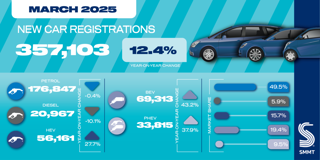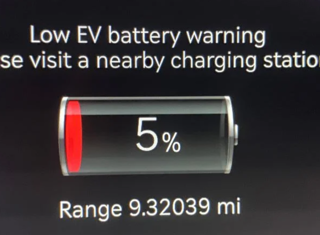New car customers are losing out on an average saving of £800 when purchasing a new motor because politeness prevents them from haggling with retailers, new research suggests.
Despite car dealers often expecting to knock down the price, one-in-seven (14%) car owners among the 1,000 surveyed in Norton Finance’s study of consumer car buying habits said that they decide against negotiation, working out at £5.2bn in potential savings that drivers aren’t getting – with those who do haggle each getting an average of £819.33 off a purchase.
Of those who don’t ask the seller to reduce the cost of a new vehicle, one in six (18%) believe it’s ‘impolite’ to try and get a bargain, while 39% are too shy to try and more than half (52%) say that they don’t haggle because they’re ‘useless’ at it.
Paul Stringer, managing director of Norton Finance, said: “We know that most people can’t resist a bargain, but clearly many of us are uncomfortable with negotiating down the price of a car.
“It really is that very British attribute of feeling a bit awkward when talking about money and perhaps not wanting to be seen as an impolite person.”
Norton Finance compared towns and cities across the UK when considering its findings in an effort to find out who were the UK’s most confident and cautious hagglers when buying a car.
With 60% of people always on the prowl for a bargain, Wrexham came out on top, netting an average saving of £1,172.50 on their vehicles.
And 30% of hard-bargaining Wrexham residents said they have refused to leave a dealership before getting the deal they want.
Chelmsford finished the bottom of the pile, with just 28% of car-buyers seeking a negotiation over price, receiving an average reduction of £555.50.
Answering the question of which gender has the knack for nabbing a great deal, men were 10% more likely to haggle than women and more likely to get a better deal, with an average of £150 more saved per purchase.
However, men were more likely to make up the one-in-20 (6%) hagglers who managed to come away paying more than the asking price.
What do car sellers expect from a buyer? Norton Finance’s survey revealed that 18% was the amount a seller would reduce the price by before it becomes too ‘cheeky’.
When considering a typical £18,000 vehicle it equates to a £3,240 saving, leaving plenty of haggling wiggle room.
Stringer said: “At the end of the day, a car is a big purchase and the consumer is well within their rights to ask for a reduction in price – the seller will be expecting it, so there’s no need to be embarrassed.
“You shouldn’t be persuaded to go with a cheaper model just because the one you want doesn’t meet your budget – try to get a saving on the car you really like.”
Below is an infographic summary of Norton Finance's findings:



















Login to comment
Comments
No comments have been made yet.